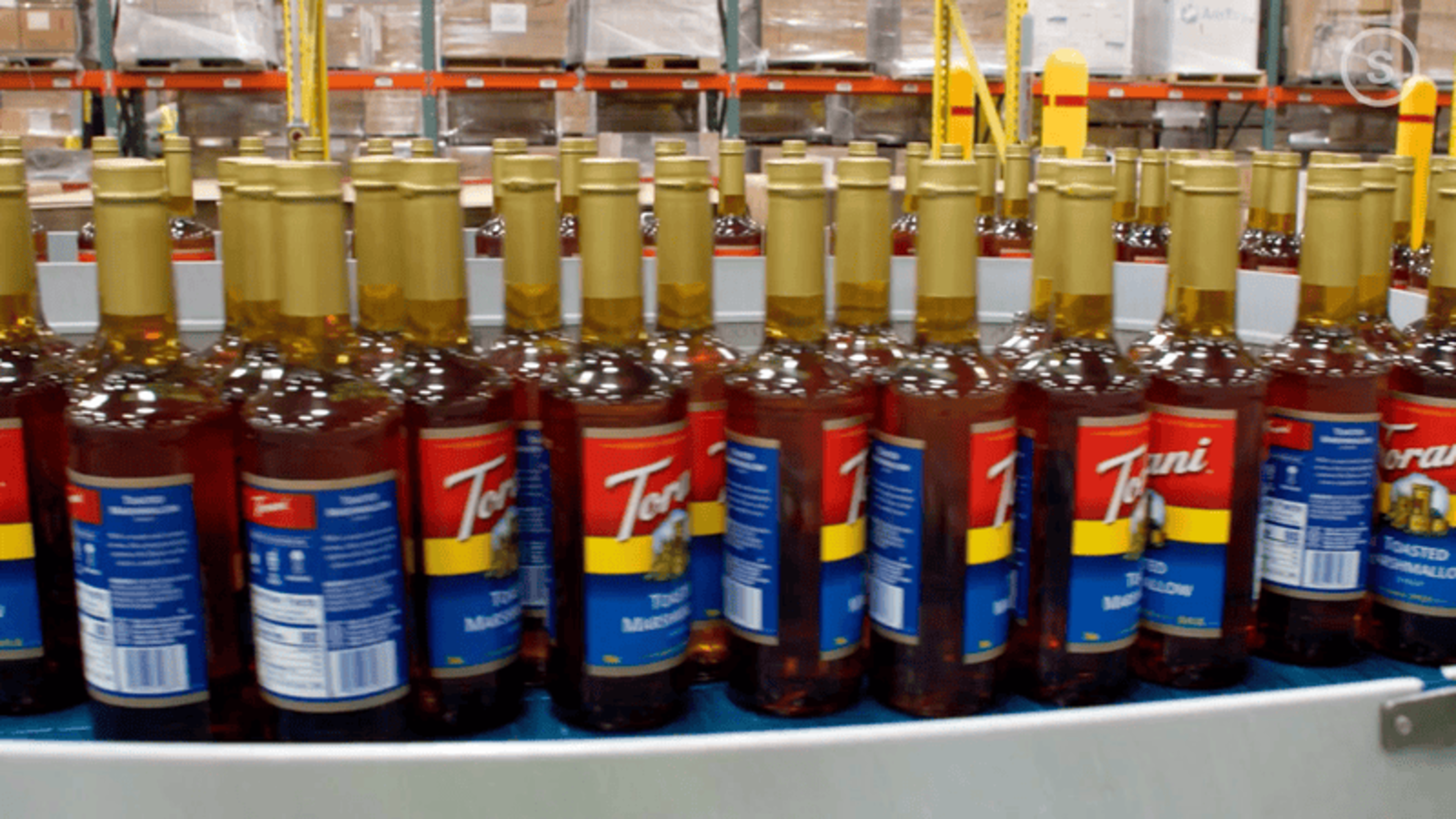Stepping onto the factory floor at Torani—the local-yet-global brand of flavored syrups—is like walking into a giant cotton-candy machine. All around you is the sweet aroma of spun sugar, the sound of equipment whirring, the sight of aluminum tanks glistening. A complex digital system from Germany keeps the ingredients flowing through the pipes, allowing the factory to produce 60,000 cases of syrup a day.
“It’s the Sistine Chapel of industrial piping,” said Greg Phillips, director of manufacturing at Torani.
It’s a far cry from the humble roots of the business, a remnant of which is an antique bottling machine that stands in the front lobby of the now more than 300,000-square-foot factory in San Leandro.
Ezilda and Rinaldo Torre began Torani in 1925 in North Beach with just five flavors: tamarindo, orgeat, lemon, grenadine and anisette, based on family recipes from their native Lucca, Italy.
The castle on the bottle’s red, yellow and blue label references a famous tower in Lucca, and Torani is a portmanteau between Torre and Melani, a grocery wholesaler that used to sell the syrup.
The company now crafts more than 150 flavors in house, with premium ingredients sourced from around the U.S., including sugar—30,000 pounds of it a day—from nearby C&H Sugar Company in Crockett.
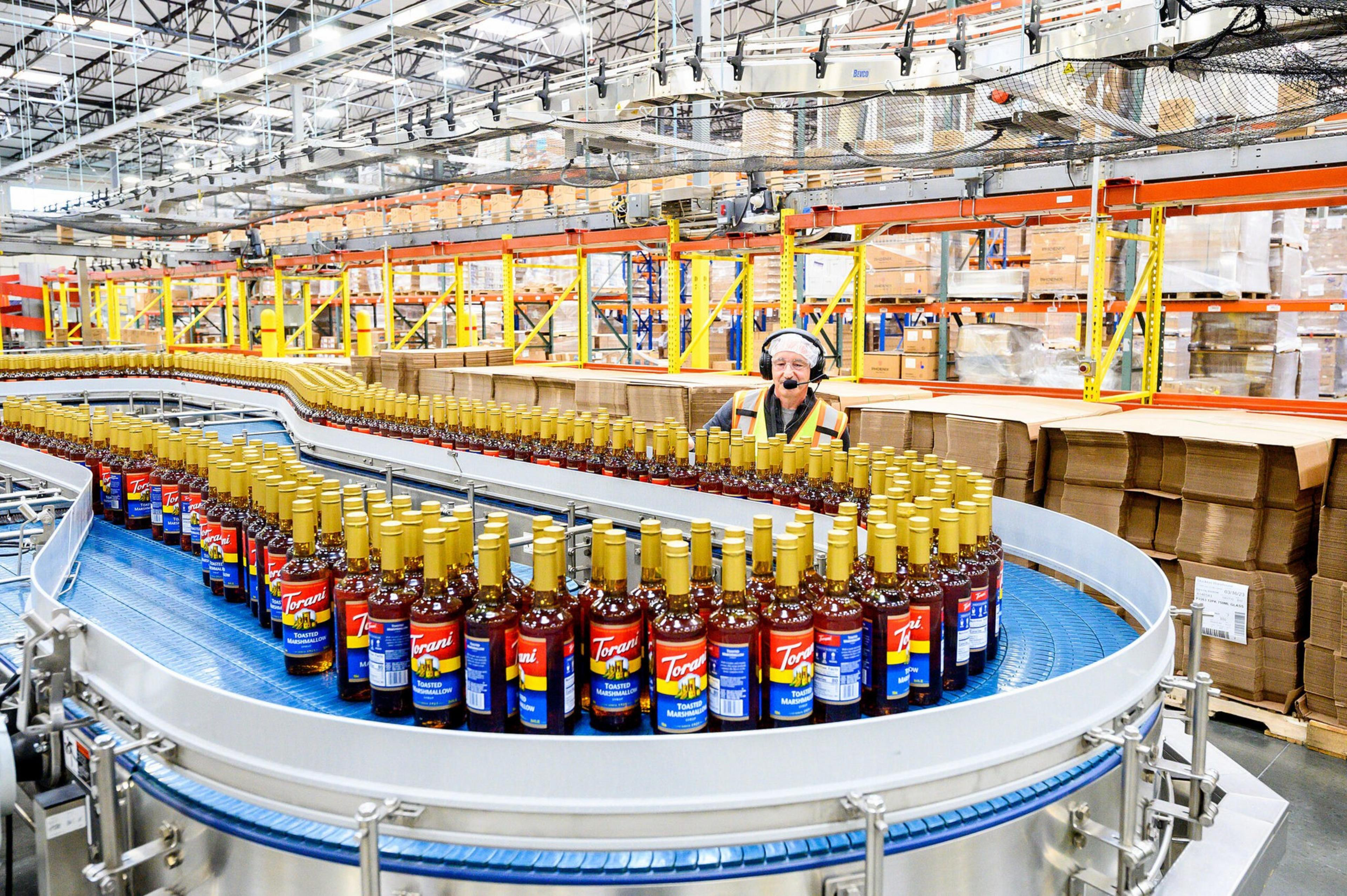
The private business has grown a stunning 20% year over year (opens in new tab) for the past 32 years, according to Melanie Dulbecco, Torani’s chief executive officer, by capitalizing on the flavored latte revolution and meeting consumer demand. Today the company’s main competitors are Monin (for syrup) and Ghirardelli (for sauce) in a market that continues to expand.
Torani is women-run and family-owned, and it retained 96% of its employees when it moved across a bridge from South San Francisco to San Leandro in 2020.
Nearly a century after its founding, Torani’s continued growth makes the San Francisco cityscape mural in its front offices—in which the Salesforce Tower is replaced by a Torani bottle—seem like more than a mirage.
North Beach Birth
Torani’s expansive new factory in San Leandro includes a secret speakeasy—you press a wall of bookshelves to enter it—which is a nod to an extinguished chapter of the brand’s history.
When Prohibition was repealed in 1933, Torani added liqueurs and cordials to its portfolio of syrups. In 1940, you could score a bottle of Italian- or French-style Torani vermouth for just 89 cents.
The speakeasy oozes history, with framed black-and-white photographs of the founders and longtime loyal Torani customers, like the Victoria Pastry Company and Caffe Trieste.

Along the wall stands a worn black safe from the Italian American Distributing Company. Only Dulbecco, the CEO, and Lisa Lucheta, the granddaughter of Ezilda and Rinaldo Torre and Torani’s chairperson of the board, know the combination. Inside the safe: recipes.
“It’s the original handwritten formulas for our syrups on 3-by-5 index cards,” Lucheta said, “many of them in my grandmother’s handwriting.”
The Italian American Distributing Company—the name on the safe—was a wholesale grocer, and Rinaldo Torre became its manager in 1931, according to San Francisco city directories. Torre died suddenly of a heart attack in his 40s, leaving his wife alone with two young children.
“It was an incredibly difficult situation,” Dulbecco said. “But they circled around and asked, how can we get through this together?”
Ezilda Torre ended up becoming one of the first women to distill spirits in the country, and she continued the operation as a woman-run business, a rarity at the time. It’s yet another Torani tradition that’s been passed through generations.
The female leadership that began with Ezilda carries through to Dulbecco and Lucheta.
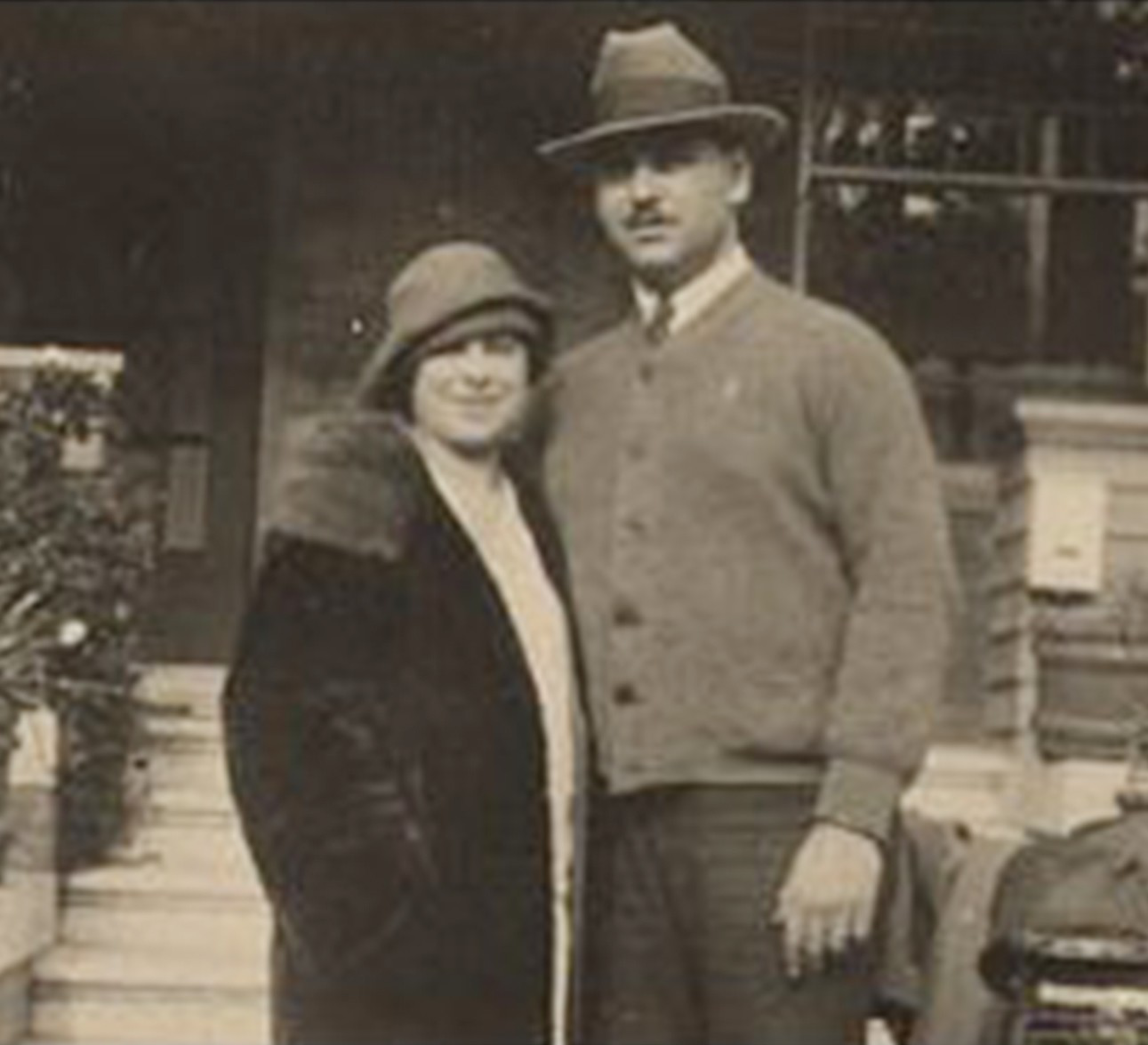
These days, three of the company’s five original flavors are still in production. It no longer makes anisette (licorice) nor tamarindo (a tangy fruit)—much to the dismay of one elderly customer, who calls the company every month to request the latter’s return.
“It could definitely come back someday,” said Stacy Cooper Dent, general manager. “I’m not ruling it out.”
The Flavored Latte Revolution
It wouldn’t be a surprise to someday see tamarindo back on the shelves again. Torani is continuously introducing new flavors, adding anywhere from four to six every year.
“We try to retire a flavor every time we introduce a new one,” Dent said. “But in reality that doesn’t happen.”
Some of the retired flavors include honey vanilla, balsamic fig, late harvest grape, and chicken and waffles. There is always a period of mourning (and stockpiling) by the most ardent fans of a disappearing flavor.
Torani keeps on staff a “trendologist,” who scouts the food industry for the latest obsessions and names a flavor of the year—2023’s is black sesame.
The flavor mania began, in large part, thanks to a lucky break. But it almost didn’t happen at all.
In 1982, retired coffee industry veteran “Brandy” Brandenburg was sitting in Caffe Trieste in North Beach—ironically, just a few doors down from what had been the original location of the Italian American Distributing Company that used to make Torani’s syrups—when he had an idea. Why not add Torani flavored syrup to coffee instead of soda?

“He came in and made a handshake deal with my dad,” Lucheta said, “to try out this new sensation.”
It seems second nature now, but Brandenburg had a hard time convincing people.
He took his idea—and his cases of vanilla Torani—back with him to Portland, Oregon, where he began giving out free samples at the espresso cart in front of Nordstrom to turn people on to flavored lattes.
Eventually it worked. In 1990, Torani sold 1,500 cases of grenadine, its most popular flavor, used mostly in sodas and cocktails. In 1991, the company sold 17,000 cases—of vanilla alone. The flavored latte revolution was on, and vanilla remains by far and away Torani’s bestseller (it now makes 12 different varieties).
Brandenburg taught Starbucks how to make flavored lattes, and the coffee chain bought its syrups directly from Torani for a year and a half before it developed its own private label.
But it is not coffee, nor vanilla, nor cafes, that is ushering Torani into the next chapter of its growth. That would be the home kitchen.
Beyond Beans
Torani’s move into its new San Leandro digs could not have been more ill-timed: It happened in February 2020.
“It was the biggest investment our company had ever made,” Dent said. “And it happened at the worst time.”
People soon began sheltering in place. Coffee shops were closing across the country. The plane full of German engineers who were supposed to train employees on the new digitized machinery was grounded.
“We had a lot of loans to pay back,” Dulbecco said. “And business had dropped 20%.” The one-month drop was a shock for a business that had become used to consistent growth.
The company used the inspiration of Ezilda Torre, who was widowed in the mid-1930s with two young children, to problem-solve and forge ahead.
“You circle around and come together,” Dulbecco said. “You don’t focus just on financing.”
Trainings were rescheduled on Zoom. Emphasis pivoted to online sales and home consumers.
By April 2020, the sales had leveled off and then started to climb again. People became home baristas, crafting their own inventive lattes with help from Torani.
But the homemade creations didn’t stop with coffee. These days, Torani recipes get passed around social media with gusto. People drizzle and swirl its sweetness into Greek yogurt, cottage cheese, dairy-free milks, sodas, lemonades and iced teas.
Now the syrups are having a particular moment with flavored water, thanks to TikTok, where pop singer Olivia Rodrigo (opens in new tab) made #dirtysoda super trendy (opens in new tab), and people share their WOTD (water of the day) with the hashtag #WaterTok. White peach, sugar-free pineapple and sugar-free coconut have emerged as favorites, according to Taylor Lee, who handles Torani’s social media.
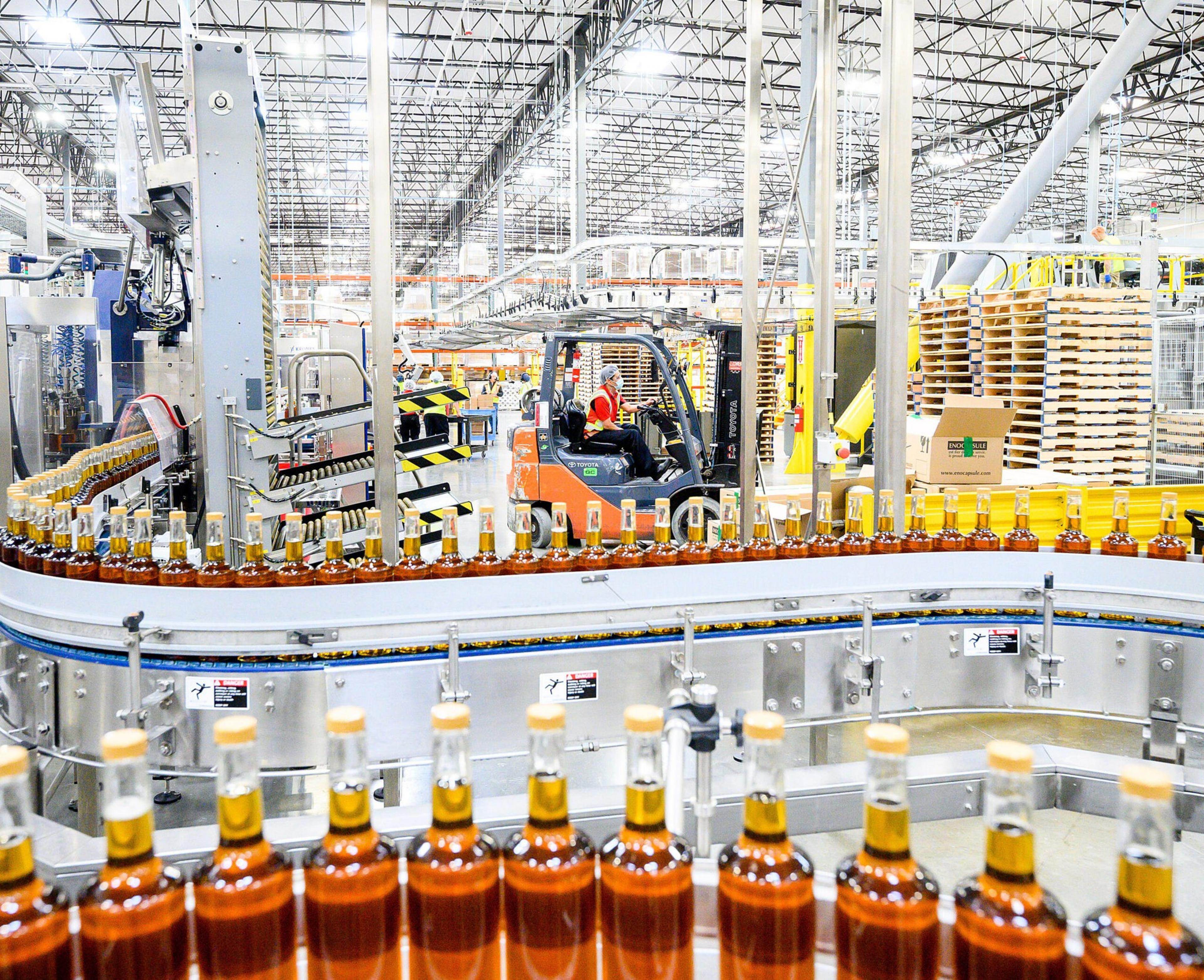
The recent most popular flavors more generally are ones that are multilayered and embrace a sweet-salty divide, according to Dent, which is why the company has pushed flavors like mangonada and salted egg yolk (its 2022 flavor of the year that immediately sold out, despite the many barfing emojis on Facebook).
But Torani isn’t just focusing on the people who buy its products—it’s also focusing on the people who make them.
Lucheta knew business was going well once she saw that opportunities were being created within the company, instead of people needing to leave in order to advance in their careers.
Simon Guillermo began at the San Leandro factory in March 2020 in packaging and quickly moved up to batching and making syrups.
“You don’t get that many chances in your life to be part of something like this,” Guillermo said, gesturing to the sparkling machines around him.
Lucheta hands out everyone’s paycheck personally to the over 250 full-time employees, carrying on a tradition her father, Harry Lucheta, began.
“It’s a wonderful experience, because it allows me to say hello to everybody once every two weeks if I don’t see them otherwise,” Lucheta said. “It makes the connection for them with the old family.”
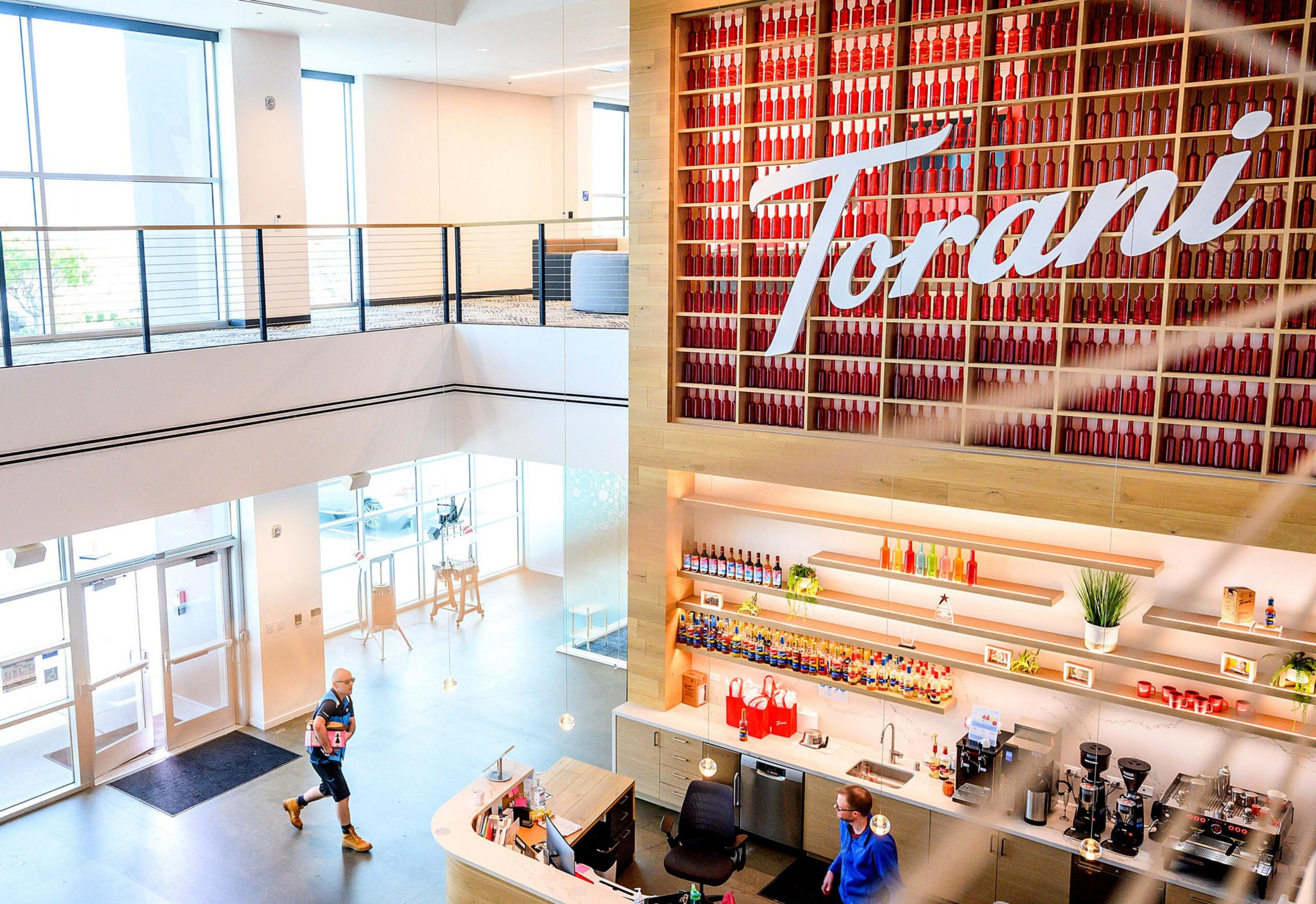
Lucheta does not have children to pass the company to, but Dulbecco imagines it remaining a family business in spirit. “The fourth generation is our team,” she said, noting that the company has an employee stock ownership program for 10% of the company, which has 275 employees.
Torani only has plans to keep growing—the company is in the process of converting a neighboring building into an additional 100,000 square feet of factory space. It’s also dedicated to staying in the Bay Area, despite the expense.
“It takes a commitment to stay here,” Dent said. “You have to work smarter to have the numbers make sense.”
“This will always be our home,” Dulbecco said. “We’ve planted our flag here.”
